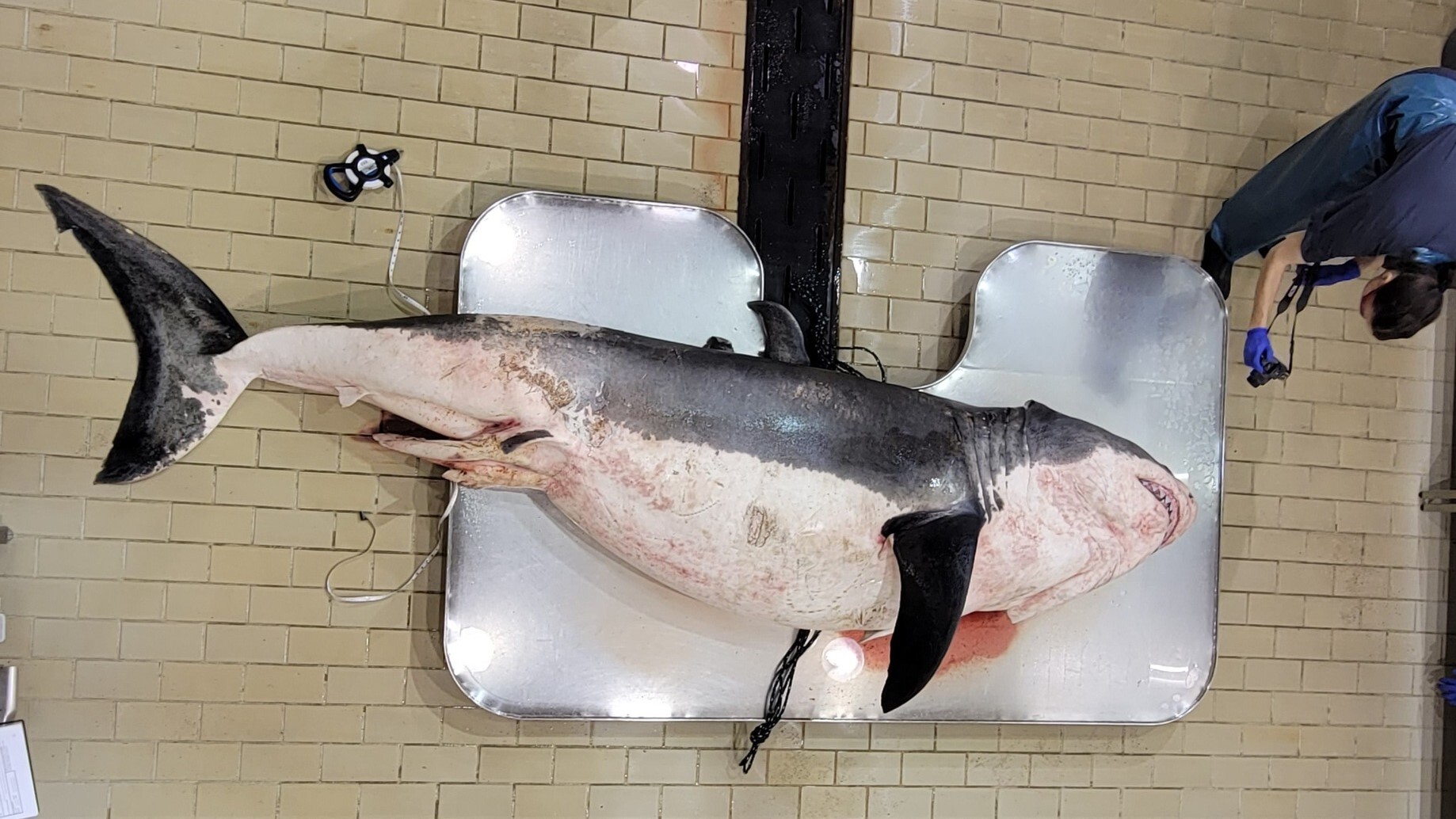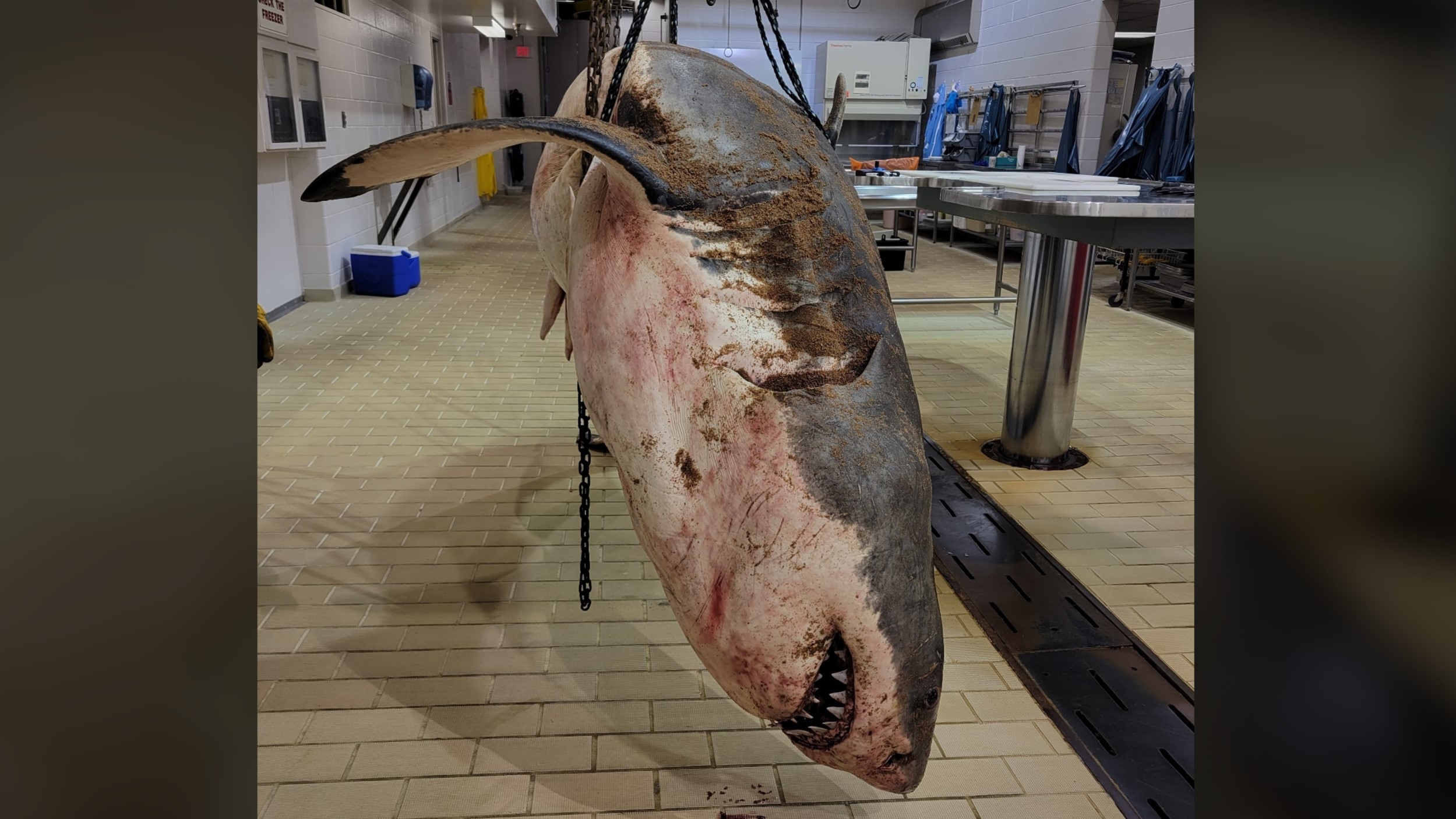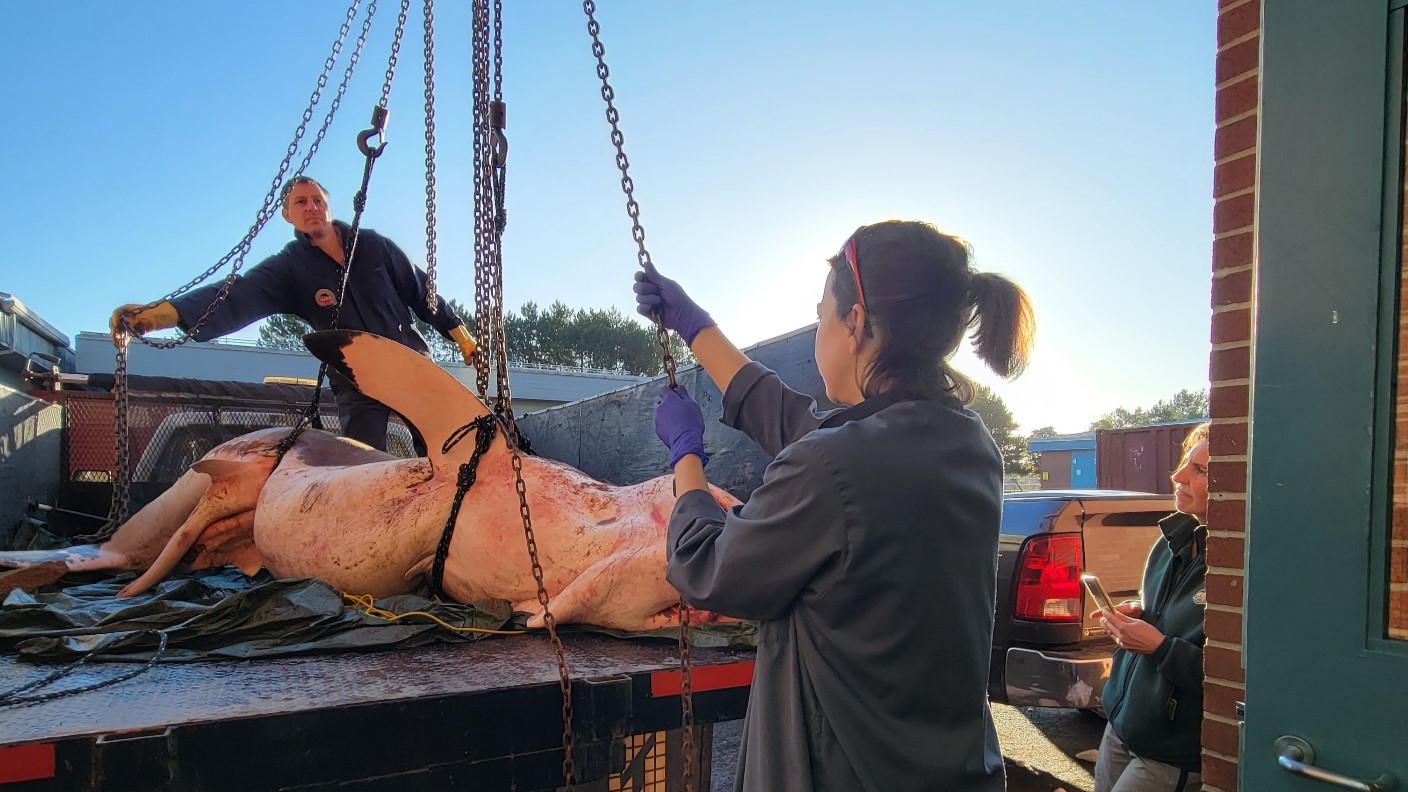Big, healthy great white shark washes up dead on Canada beach in latest of string of mystery strandings
Scientists have performed a necropsy on a great white shark that washed up in Nova Scotia — the fifth unexplained stranding of its kind in a year — but were unable to determine the cause of death.
Get the world’s most fascinating discoveries delivered straight to your inbox.
You are now subscribed
Your newsletter sign-up was successful
Want to add more newsletters?

Delivered Daily
Daily Newsletter
Sign up for the latest discoveries, groundbreaking research and fascinating breakthroughs that impact you and the wider world direct to your inbox.

Once a week
Life's Little Mysteries
Feed your curiosity with an exclusive mystery every week, solved with science and delivered direct to your inbox before it's seen anywhere else.

Once a week
How It Works
Sign up to our free science & technology newsletter for your weekly fix of fascinating articles, quick quizzes, amazing images, and more

Delivered daily
Space.com Newsletter
Breaking space news, the latest updates on rocket launches, skywatching events and more!

Once a month
Watch This Space
Sign up to our monthly entertainment newsletter to keep up with all our coverage of the latest sci-fi and space movies, tv shows, games and books.

Once a week
Night Sky This Week
Discover this week's must-see night sky events, moon phases, and stunning astrophotos. Sign up for our skywatching newsletter and explore the universe with us!
Join the club
Get full access to premium articles, exclusive features and a growing list of member rewards.
A large, healthy-looking great white shark that washed up dead on a beach in Canada is the latest in a string of mystery strandings in the region.
The 14-foot-long (4.3 meters) male adult shark was seen thrashing in the water near North Bay Wharf in Nova Scotia before stranding on Broad Cove Beach in Cape Breton on Oct. 5. The carcass then washed back out to sea, but a team with the animal conservation organization Marine Animal Response Society (MARS) managed to recover it a week later for analysis.
Pathologists performed a necropsy on the great white shark (Carcharodon carcharias), but the examination yielded no clues about the cause of death.
"Right now it does not look nutritional (the liver was large and full of lipids), nor does it look like trauma," Laura Bourque, a wildlife pathologist with the Canadian Wildlife Health Cooperative who conducted the necropsy, told Live Science in an email.
Related: Orcas attacked a great white shark to gorge on its liver in Australia, shredded carcass suggests
While the shark's dorsal fin was missing a chunk, the necropsy revealed this was the result of an old, healed injury and probably didn't contribute to the animal's death. The shark was otherwise "in good overall body condition," MARS staff wrote in a Facebook post.
The stranding is the latest in a series of similar incidents that have left scientists floundering. The shark is the fifth great white found beached on the Canadian coast and registered with MARS since last October — a record number when compared to the last 20 years, which saw just one or two such strandings in total, Live Science previously reported.
Get the world’s most fascinating discoveries delivered straight to your inbox.
Scientists haven't got to the bottom of the previous four strandings yet, but they are "in the process of finalizing those cases," Bourque said.
Adult great white sharks rarely wash ashore, Tonya Wimmer, the executive director of MARS, told Live Science in an email. Three of the five dead sharks were juveniles. "This last year has been an anomaly in terms of the number of white sharks reported to us in distress or dead," Wimmer said.
Very little is known about what causes sharks to become stranded, Wimmer said. While marine mammals can wash up for various reasons — including ingestion of plastics, entanglement in fishing gear, vessel strikes, disease and injury — it's unclear whether the same factors are at play with sharks, she added.
Scientists kept samples of the shark's tissues and are performing additional tests, as "any infectious, toxic or metabolic disease may potentially not be apparent at necropsy," Bourque said.
The team also collected additional samples in the hope they might "support several research projects on these magnificent animals," the Facebook post said.

Sascha is a U.K.-based staff writer at Live Science. She holds a bachelor’s degree in biology from the University of Southampton in England and a master’s degree in science communication from Imperial College London. Her work has appeared in The Guardian and the health website Zoe. Besides writing, she enjoys playing tennis, bread-making and browsing second-hand shops for hidden gems.
 Live Science Plus
Live Science Plus













